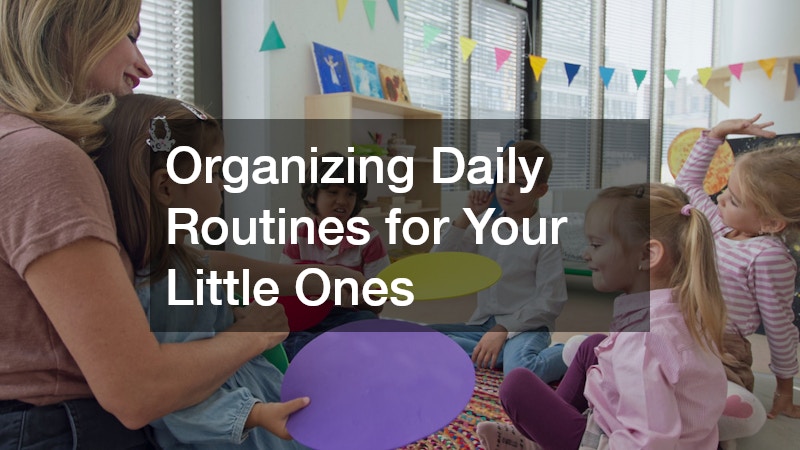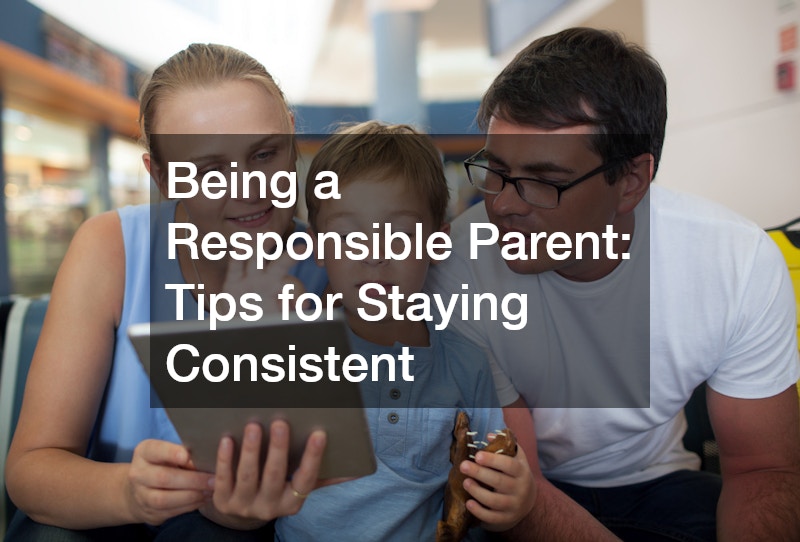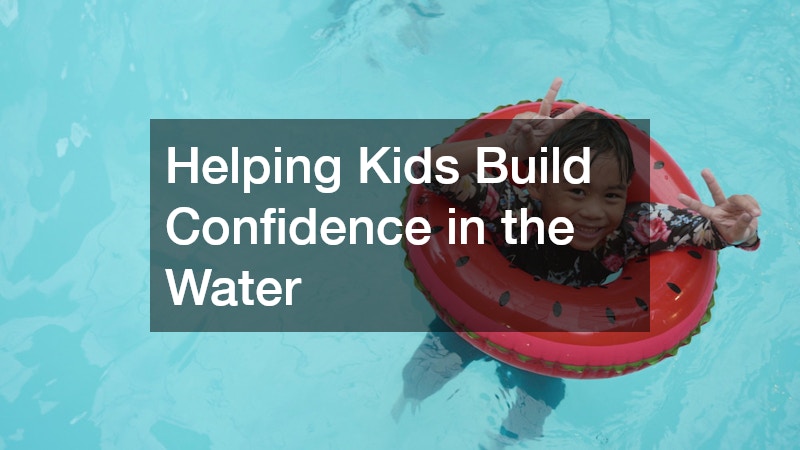
Being a parent is a journey filled with joy, challenges, and constant learning. From the moment a child is born, the responsibility of shaping their well-being, education, and overall development becomes a central focus. Raising children requires more than providing food, clothing, and shelter—it demands attention to their physical health, mental growth, emotional stability, and social skills. Every choice a parent makes, no matter how small, can significantly impact a child’s future. Being consistent and intentional in daily routines helps children feel secure and nurtured while equipping them with tools to navigate the world confidently.
Consistency in parenting also fosters a structured environment where children learn discipline, responsibility, and empathy. Developing schedules for meals, study time, recreational activities, and bedtime ensures that children grow accustomed to expectations and boundaries. Equally important is balancing the needs of parents themselves with those of children, as maintaining personal well-being allows caregivers to remain patient, present, and engaged. A household that prioritizes organization, communication, and proactive planning creates a foundation where kids thrive academically, socially, and emotionally.
Parents today face unique challenges as the world changes rapidly. Access to educational opportunities, extracurricular programs, and healthcare requires thoughtful decision-making and careful coordination. A thoughtful parent considers not only immediate needs but also long-term outcomes, such as establishing healthy habits, fostering a love for learning, and encouraging self-confidence. Understanding the importance of early interventions, preventative healthcare, and structured learning experiences is essential to raising well-rounded children.
Ultimately, being a responsible parent is about blending love with strategy, empathy with consistency, and nurturing with guidance. It is about creating an environment that promotes growth while protecting children from preventable risks. Every step—from organizing daily routines to selecting appropriate educational paths, encouraging physical activity, and maintaining health—contributes to a child’s overall development. This article explores practical strategies that parents can use to stay consistent in caring for their children, supporting both their immediate needs and long-term well-being. By committing to thoughtful planning, proactive parenting, and setting a positive example, caregivers can cultivate confident, healthy, and resilient children ready to thrive in life.
Organizing Daily Routines for Your Little Ones

Establishing clear daily routines is one of the most effective ways an attentive parent can ensure stability and predictability in a child’s life. Young children, especially toddlers and preschoolers, thrive when they know what to expect from their day. Simple activities such as meal times, naps, playtime, and bedtime rituals provide children with a sense of security and consistency. When routines are well-structured, children are less likely to become overwhelmed or anxious, allowing them to focus on learning, social interactions, and exploration.
A dedicated caregiver takes time to develop routines that are practical, achievable, and adaptable as children grow. Flexibility is key because children’s needs change over time, and a rigid schedule can sometimes create unnecessary stress. For instance, incorporating brief play breaks between learning activities helps maintain focus and energy. Likewise, balancing structured tasks with free play encourages creativity and problem-solving skills. By thoughtfully arranging daily activities, parents help children develop self-discipline and time management skills that carry into their school years and beyond.
Partnering with child care providers can also support a well-rounded daily routine. Quality child care programs offer structured activities, socialization opportunities, and educational enrichment that complement home routines. An engaged caregiver actively communicates with caregivers to ensure that expectations, dietary needs, and developmental goals are consistently met. Whether it’s coordinating drop-off and pick-up schedules or reviewing progress reports, staying engaged with child care providers enhances continuity in a child’s daily experience and fosters a supportive learning environment. Establishing a balance between home and care settings also helps children adapt more easily to social interactions and academic challenges.
Choosing the Right Educational Path
Selecting the right educational path is a major decision for parents, as it can influence a child’s academic performance, social development, and long-term opportunities. The choice between public, private, or specialized schools involves evaluating curriculum quality, teacher experience, extracurricular offerings, and overall school culture. A responsible parent carefully researches options and considers the unique needs, learning style, and personality of their child.
Private schools often provide smaller class sizes, individualized attention, and enriched academic programs. Parents must weigh the benefits of these resources against logistical considerations and financial commitments. Visiting campuses, speaking with administrators, and reviewing school performance data can provide valuable insight into which environment will best support a child’s growth. A dedicated caregiver also seeks input from their child to ensure that the chosen educational path aligns with the child’s interests and comfort level.
Ultimately, selecting the right school is not only about academic reputation but also about fostering a nurturing, safe, and stimulating environment. Parents who thoughtfully evaluate educational options and remain actively involved in their child’s schooling contribute significantly to academic success, social confidence, and a lifelong love of learning. Encouraging curiosity, creativity, and a sense of community within the school environment also supports emotional growth.
Encouraging Physical Activity and Discipline
Incorporating structured physical activities into a child’s routine is essential for promoting health, confidence, and discipline. Martial arts classes, for example, teach children balance, coordination, focus, and respect. Beyond physical fitness, these programs emphasize goal-setting, perseverance, and self-control—qualities an attentive parent seeks to instill in children from a young age.
Regular engagement in physical activities also provides an outlet for energy, reduces stress, and supports overall mental well-being. An engaged caregiver encourages participation in activities that match a child’s interests, allowing them to build self-esteem and develop a sense of accomplishment. Consistency in attendance and reinforcement of learned principles at home further enhance the benefits of these programs.
By prioritizing physical development alongside academic learning, parents help children cultivate a holistic approach to personal growth. Martial arts and other structured activities reinforce discipline, patience, and respect for others—traits that serve children well both in school and in social settings. Physical fitness also positively impacts focus, mood, and long-term health outcomes, providing benefits that extend far beyond childhood.
Helping Kids Build Confidence in the Water
Swimming lessons offer more than just a fun way to stay active—they teach essential life skills that ensure safety and build confidence. Water can be intimidating for young children, and learning to swim helps them develop comfort and competence in this environment. A thoughtful parent recognizes the importance of regular swimming instruction as a critical component of physical and emotional development.
Structured lessons promote coordination, endurance, and safety awareness, while positive reinforcement helps children overcome fear and develop a sense of achievement. Practicing swimming skills in a supportive setting encourages perseverance and resilience, qualities that a responsible parent strives to nurture. Additionally, the social aspects of group lessons provide opportunities for teamwork, cooperation, and communication.
Regular swimming practice also reinforces the importance of consistency and dedication. An engaged caregiver ensures that lessons are maintained and complements the experience with safe water play at home or in supervised environments, further building children’s confidence and skill level. Encouraging water safety both in pools and during recreational activities strengthens children’s independence and awareness.
Staying on Top of Your Child’s Health Checkups
Routine medical care is essential for monitoring growth, development, and overall health. Pediatricians provide regular assessments, vaccinations, and guidance on nutrition, sleep, and developmental milestones. A dedicated caregiver prioritizes keeping up with well-child visits, ensuring that any concerns are addressed promptly.
Health checkups allow early detection of potential issues, from growth delays to vision or hearing concerns. By maintaining a schedule of regular appointments, parents can prevent minor problems from escalating into serious complications. A responsible parent also fosters open communication with the pediatrician, sharing observations about behavior, diet, and sleep patterns to support comprehensive care.
Children feel more secure when health routines are predictable and integrated into their overall schedule. A proactive parent emphasizes preventive care, helping children understand the importance of maintaining their health while reducing anxiety around medical visits. Regular monitoring also helps parents track milestones and make informed decisions about nutrition, physical activity, and emotional support.
Maintaining Healthy Smiles from an Early Age
Dental hygiene is a crucial aspect of a child’s overall well-being. Regular dentist appointments establish healthy habits and allow for early intervention when issues arise. An engaged caregiver encourages consistent brushing, flossing, and dental visits to prevent cavities, gum disease, and other oral health problems.
Positive dental experiences foster lifelong habits and reduce fear of dental care. Parents can reinforce good practices by modeling proper oral hygiene, providing educational resources, and celebrating milestones such as cavity-free checkups. Establishing these routines early on ensures that children understand the importance of maintaining healthy smiles.
Planning for Long-Term Dental Alignment

Orthodontic care often becomes a consideration as children grow, helping to guide teeth and jaw development. A proactive parent monitors dental progress and consults with specialists to determine the optimal timing for interventions such as braces or aligners. Early planning can prevent more complex issues later, reducing both discomfort and cost.
Orthodontic treatment requires patience, consistency, and active parental support. A responsible parent ensures that children follow care instructions, attend appointments, and maintain oral hygiene throughout the process. Proper planning and attention to detail promote lasting results, contributing to both functional and aesthetic benefits. Encouraging children to understand the purpose of orthodontics also helps them feel more involved and confident in their care.
Keeping Your Home Clean and Safe
Maintaining a clean home is integral to a child’s health and safety. Carpet cleaning services, in particular, help reduce allergens, bacteria, and dirt accumulation, creating a healthier indoor environment. A thoughtful parent prioritizes regular cleaning schedules to ensure that living spaces are safe, comfortable, and inviting.
Beyond hygiene, a clean home fosters organization and routine. Children learn by example, observing the value of cleanliness and responsibility. An attentive parent incorporates age-appropriate chores to involve children in maintaining their environment, teaching skills that support independence and accountability. A tidy home also contributes to mental clarity and reduces stress for both parents and children.
Ensuring Clear Vision for Growing Eyes
Regular visits to the optometrist ensure that children’s vision remains sharp and healthy. Early detection of vision problems can prevent learning difficulties, headaches, and other challenges associated with poor eyesight. A responsible parent schedules routine eye exams and monitors changes in visual behavior to maintain optimal eye health.
Corrective measures, such as glasses or vision therapy, require consistency and encouragement. An engaged caregiver helps children adapt to these changes, reinforcing the importance of proper eye care and follow-through on professional recommendations. Healthy vision contributes not only to academic success but also to confidence and quality of life.
Supporting a Straighter Smile With Care
Teeth straightening treatments, including braces or clear aligners, often extend over several months or years. A thoughtful parent ensures that children follow care instructions, attend appointments, and maintain oral hygiene throughout treatment. Active involvement and encouragement are key to achieving the best results.
Supporting a child during this process also includes fostering confidence and self-esteem. A proactive parent celebrates milestones, helps children adapt to new routines, and reinforces the value of consistent care. With attention and dedication, children can enjoy both functional and aesthetic benefits from a straighter smile. Regular communication with dental professionals helps anticipate adjustments and ensures optimal results over time.
Raising children requires a careful balance of love, structure, and proactive engagement. A responsible parent recognizes that consistency, attention, and foresight are fundamental to nurturing well-rounded, healthy, and confident children. From organizing daily routines to monitoring educational choices, physical activity, and health care, each decision contributes to a child’s overall development. Being consistent and deliberate in parenting practices allows children to feel secure while learning important life skills.
A proactive parent embraces both immediate and long-term considerations. Scheduling regular medical, dental, and vision appointments, encouraging physical activities, and supporting educational pursuits all contribute to a child’s success. Attention to daily routines, household cleanliness, and extracurricular involvement reinforces discipline, self-confidence, and independence. These practices create an environment where children can thrive academically, socially, and emotionally.
Importantly, being a responsible parent is also about modeling behaviors, attitudes, and values. Children observe their parents’ actions, and consistency in health care, personal responsibility, and organization teaches lifelong habits. Encouraging positive habits, celebrating achievements, and guiding children through challenges builds resilience, confidence, and adaptability.
The journey of parenting is dynamic, requiring flexibility, patience, and ongoing learning. A dedicated caregiver remains engaged, communicates effectively with educators and healthcare providers, and thoughtfully plans for future needs. By prioritizing physical health, emotional well-being, and personal development, parents provide the foundation for a fulfilling and successful life. Being a responsible parent is not defined by perfection but by dedication, awareness, and consistent effort. Those who embrace these principles cultivate a nurturing environment where children flourish, develop confidence, and acquire essential life skills. Through thoughtful planning, proactive care, and unwavering support, a responsible parent can guide children toward becoming healthy, capable, and confident individuals, equipped to navigate the world with resilience, independence, and self-assurance.




